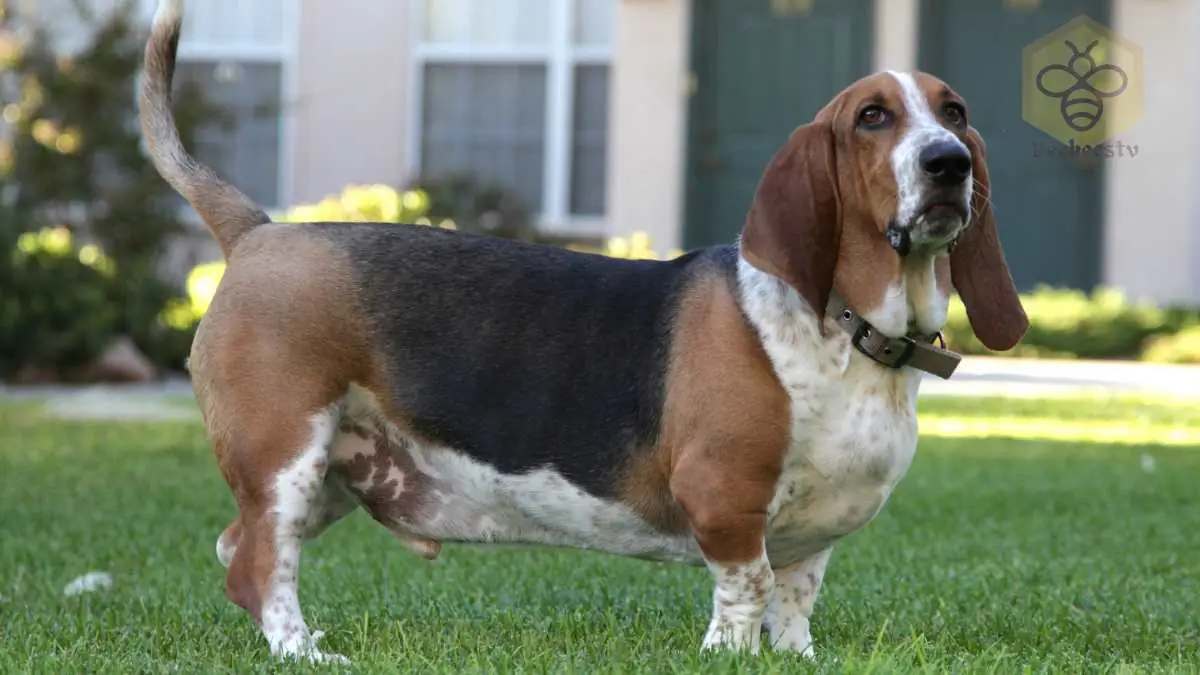Basset Hound: The Lovable Long-Eared Companion
Basset Hound
Introduction
The Basset Hound is one of the most recognizable and beloved dog breeds, known for its long ears, droopy eyes, and exceptional sense of smell. Originally bred for hunting, this breed is now a popular family pet, valued for its gentle temperament and affectionate nature.
Scientific Overview
Scientific Name
The scientific name for the domestic dog, including the Basset Hound, is Canis lupus familiaris.
Common Name
Basset Hound
Scientific Classification
| Kingdom | Animalia |
| Phylum | Chordata |
| Class | Mammalia |
| Order | Carnivora |
| Family | Canidae |
| Genus | Canis |
| Species | C. lupus |
| Subspecies | C. lupus familiaris |
Types
While there is only one recognized breed of Basset Hound, they can vary slightly in appearance and coat color. Some common colors include:
- Tri-color (black, white, and brown)
- Lemon and white
- Red and white
Habitat and Distribution
Basset Hounds were originally bred in France and Belgium for hunting small game, such as rabbits and hares. Today, they are found worldwide as household pets and companion animals. They adapt well to different environments, from apartments to homes with large yards, as long as they receive regular exercise.
Physical Characteristics
Size and Weight
Basset Hounds are medium-sized but appear larger due to their long body and short legs.
- Height: 12 to 15 inches (30 to 38 cm) at the shoulder
- Weight: 40 to 65 pounds (18 to 29 kg)
Appearance
They have distinctive features, including:
- Long, droopy ears that help trap scents for tracking
- Short, stocky legs that keep them close to the ground for effective scent work
- Loose, wrinkled skin that enhances their sense of smell
- Sad, droopy eyes that give them a gentle, endearing expression
Diet and Feeding Habits
They require a well-balanced diet to maintain their health and energy levels.
- Food type: High-quality dog food, either dry kibble or wet food
- Portion control: Important to prevent obesity, as they are prone to weight gain
- Frequency: 2 meals per day, with limited treats
Predators and Threats
As a domesticated breed, Basset Hounds do not have natural predators. However, they can face threats such as:
- Obesity due to overeating and lack of exercise
- Joint problems from their unique body structure
- Ear infections due to their long ears trapping moisture and dirt
Reproduction, Puppies, and Lifespan
- Gestation period: About 63 days
- Litter size: Typically 6 to 8 puppies
- Lifespan: 10 to 12 years with proper care
Basset Hound puppies require socialization, training, and proper veterinary care to grow into well-adjusted adult dogs.
Population and Conservation Status
They are not endangered. They are a well-established breed, recognized by major kennel clubs such as the American Kennel Club (AKC) and the Fédération Cynologique Internationale (FCI). Responsible breeding practices help maintain healthy populations.
Behavior and Lifestyle
Basset Hounds are known for their:
- Gentle temperament – They are friendly, affectionate, and great with children and other pets.
- Strong sense of smell – Second only to the Bloodhound, they are excellent scent-tracking dogs.
- Stubborn nature – Training can be challenging due to their independent streak.
- Low energy but high endurance – They enjoy moderate exercise but can be surprisingly persistent on scent trails.
Ecological Role
Historically, Basset Hounds played a role in hunting by tracking scents over long distances. Today, they contribute to search-and-rescue efforts and serve as loyal companions in homes worldwide.
FAQs About Basset Hounds
1. Are Basset Hounds good family dogs?
Yes! They are affectionate, gentle, and great with children, making them excellent family pets.
2. Do They bark a lot?
They can be quite vocal, especially when following a scent or if they feel lonely. Proper training can help manage excessive barking.
3. How much exercise does a Basset Hound need?
They need moderate exercise, such as daily walks and playtime, to stay healthy and prevent obesity.
4. Do Basset Hounds have health issues?
Yes, they are prone to ear infections, obesity, hip dysplasia, and back problems due to their long bodies. Regular vet checkups are important.
5. Are They easy to train?
They are intelligent but stubborn, so consistent, positive reinforcement training is needed. Treats and patience work best!
Conclusion
The Basset Hound is a charming and affectionate breed, loved for its unique appearance and friendly personality. While they require proper care, training, and attention to their health, they make wonderful pets for families and individuals alike.
